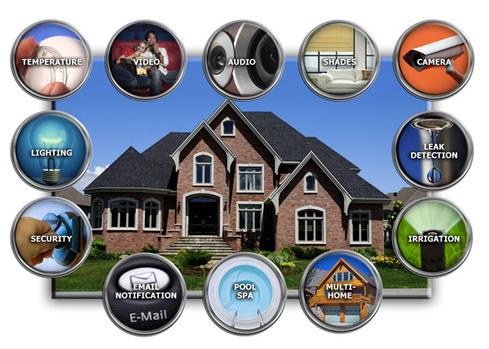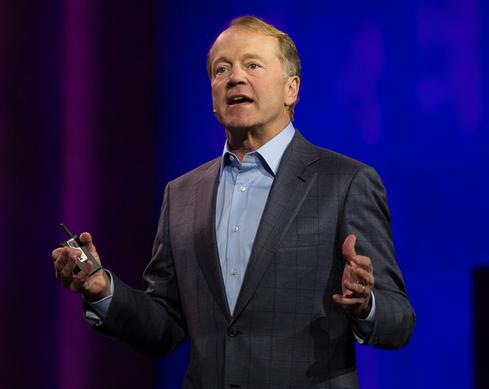Home security, energy management, and health monitoring tools will bring the Internet of Things to the connected home.


CES 2014: Cisco's Internet of Everything Vision
CES 2014: Cisco's Internet of Everything Vision (Click image for larger view and slideshow.)
Can your bathroom scale crunch data -- say, analyze your post-holiday weight gain and provide, well, useful insights? Maybe even chat with your smartwatch or fitness band, which in turn (politely) urges you to work out a bit more often?
The smart- or connected-home concept has been around for a few decades now, but aside from a relatively small community of do-it-yourself enthusiasts and luxury home owners, home automation hasn't really caught on with the general public.
Part of the problem is that technology hasn't quite been up to the task. That's changing, however, as the rapid growth of home broadband and WiFi, combined with increasingly powerful mobile processors and inexpensive HD video cameras, is enabling a host of automation features not feasible a decade ago.
A vast network of devices, each sharing and/or analyzing streams of unstructured data in real time, seems very much like a big data story. And, in fact, it is, says Greg Roberts, marketing chief for iControl Networks, a venture-backed software company that builds a connected home platform for unifying data, apps, and devices. Its software powers several major home control and security services in North America, including Comcast Xfinity Home, Time Warner Cable Intelligent Home, and ADT Pulse.
[Interop Las Vegas, run by UBM Tech, InformationWeek's parent company, opens Monday. What's the latest? Read Interop 2014: 8 Hot Technologies.]
"We are at the initial stages of the connected home," Roberts said in a phone interview with InformationWeek. "The pieces are absolutely in place today, and that is why you're seeing mass-market adoption of these solutions.
"This really is a big data industry," he said. "It's driving a significant amount of very useful information, and the more applications and devices that make their way through this ecosystem and on to our platforms, the bigger the big data gets."
iControl's connected-home software platforms today manage more than 10 million connected devices -- a number the company expects to rise to 20 million to 25 million by the end of this year.
The emergence of wearable devices like the Pebble smartwatch could prove a boon for the connected home market -- assuming, of course, that consumers buy the devices in droves. That's still far from certain.
The pieces of the wearable puzzle seem to be falling into place, though. Pebble now offers its users an iControl app. "At a click of a button, you're turning lights on and off, adjusting your thermostat, locking or unlocking doors, arming and disarming your home security system -- all on your wrist," said Roberts. "That is one of thousands of different ecosystem plays that we'll leverage to extend the feature set and consumer benefits in this arena." The recently announced Samsung Gear 2 wearable, expected to begin shipping next month, will include an iControl app, as well.
Consumer acceptance of connected-home services and devices would likely enable a host of additional services, including health-related uses such as the aforementioned data-sharing weight scale. "When a scale starts generating data, you have something that is tracking your weight on a daily basis," said Roberts. A dramatic weight change in a short period of time could suggest a serious medical issue -- information the scale could pass along to other health-oriented services.
This 24/7 collection of personal health and activity data has its merits, of course, but it also raises privacy concerns. Roberts said iControl doesn't own or share any use data, which is the property of its "deployment customers" such as ADT and Comcast. "They own it, and my assumption would be that they would consider it very private data, as well." However, iControl does "collect, process, and analyze the data in aggregate to help us enhance our solutions."
IBM, Microsoft, Oracle, and SAP are fighting to become your in-memory technology provider. Do you really need the speed? Get the digital In-Memory Databases issue of InformationWeek today.
About the Author(s)
You May Also Like







